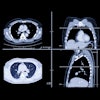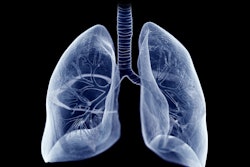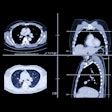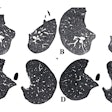There's insufficient evidence to support lung cancer screening (LCS) for never-smokers with or without a family history of the disease, according to a perspective published August 5 in the Journal of Thoracic Oncology.
A team led by Gerard Silvestri, MD, of the Medical University of South Carolina in Charleston cited research from the Taiwan Lung Cancer Screening in Never-Smoker Trial (TALENT) that suggested that the cancer detection rate for individuals screened with low-radiation dose CT (LDCT) was more than twofold higher in light- or never-smokers with a family history of lung cancer compared with those at high risk due to more than 30 pack-years of smoking -- and noted that the Taiwanese investigators concluded that "screening first-degree relatives of those with a family history of lung cancer, irrespective of smoking history, would lead to a decrease in lung cancer mortality." These findings prompted Taiwan to initiate a national screening program that recommends screening to never-smoking individuals as young as 45 with a family history of lung cancer.
In the perspective, Silvestri's group challenged this conclusion, countering that "screening this population [represents] substantial overdiagnosis" and that "the harms associated with screening a population that has a low likelihood of developing lethal cancers have not been thoroughly considered.'"
Silvestri and colleagues emphasized that LCS can translate to finding lung cancer at an earlier stage in a high-risk population and thus reduce mortality from the disease. But they also stressed that its use with low-risk individuals may lead to overdiagnosis, unnecessary additional tests, and higher levels of patient anxiety.
"Screening is a unique balance of benefit and harms," they noted. "The benefit of screening is a reduction in disease-specific mortality. The harms of screening are related to the performance of the screening test and the management of screen-detected findings. This balance is viewed in the context of the population targeted for screening -- generally, healthy individuals without symptoms or signs of disease. Only a few of everyone screened will benefit from screening, but more will be exposed to the harms."
In any case, the authors emphasized that they support robust lung cancer screening but urge careful consideration of which patients will most benefit.
"Readers should not mistake our reluctance to screen this specific population for our position on screening for lung cancer in high-risk USPSTF-eligible persons," they explained. "Ultimately, we believe that there is a need to more discriminately identify those low-risk individuals who may develop a lethal lung cancer as opposed to an indolent one. What cannot currently be advocated for is screening a population where the risk of harm to the many could outweigh the risk of benefit to the few."
The complete commentary can be found here.




















